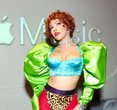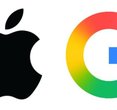
Ai Country Song 'Country Girls Make Do' Goes Viral – Musicians Left Out Of The Loop on OnlyLikeFans

AI-Powered Tunes Shake Up Spotify
In a surprising digital twist, an AI-generated country song titled 'Country Girls Make Do' has racked up 2.5 million streams on Spotify. The song, featuring quirky lyrics like, "Daddy don’t like when I diddle my daisy," has become an internet sensation, with TikTok users sharing videos of unsuspecting older relatives reacting to the track. What started as a joke is now a significant moment for AI music, which seems to be gaining traction in the charts.
Recent chart-toppers by AI 'singers' include 'Breaking Rust', which led the US Billboard country digital sales, and 'Xania Monet', dominating RnB sales. Despite this surge, these artists' profiles give no hint of their digital origins, leaving the music industry questioning the reality of this new competition. With AI music's rising popularity, some fear the blurring line between real and artificial creativity.
Musicians Raise Concerns Over AI
“AI music is a compelling innovation, but it challenges the essence of artistry,” mused one industry insider.
Legendary musician Sir Paul McCartney has taken a stand against proposed UK copyright law changes, which could allow AI companies to use copyrighted works without licensing. As part of his protest, McCartney contributed a silent track to the album 'Is This What We Want?', featuring sounds of empty studios and performance spaces, reflecting the eerie silence AI may impose on human creativity.
Other artists like Sam Fender, Kate Bush, and Hans Zimmer have joined the cause, contributing to the album to voice their concerns about AI's impact on the music world. As debates continue, the music industry looks towards a future where their craft might need protection from the digital domain.
Public Opinion Split on AI-Created Music
While streaming platforms like Deezer have started tagging AI-generated music, a recent Ipsos survey found 97% of people couldn't tell the difference between human and AI-made tracks. This statistic highlights the challenge listeners face in a landscape saturated with digital creations. Despite their inability to differentiate, 73% of people believe platforms should be transparent about AI content, recognizing its potential threat to musicians' livelihoods.
Platforms like Spotify grapple with tagging AI music, citing challenges since many legitimate artists incorporate AI tools in their process. As AI-generated tunes flood platforms by the thousands daily, the fine line between creativity and computation becomes harder to distinguish. The future of music may well depend on finding harmony between AI innovation and human artistry.















